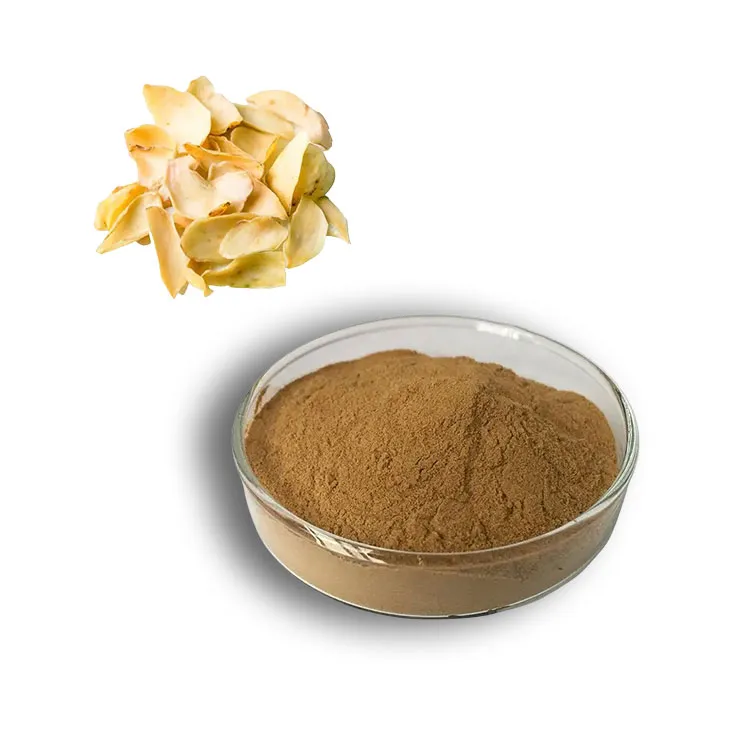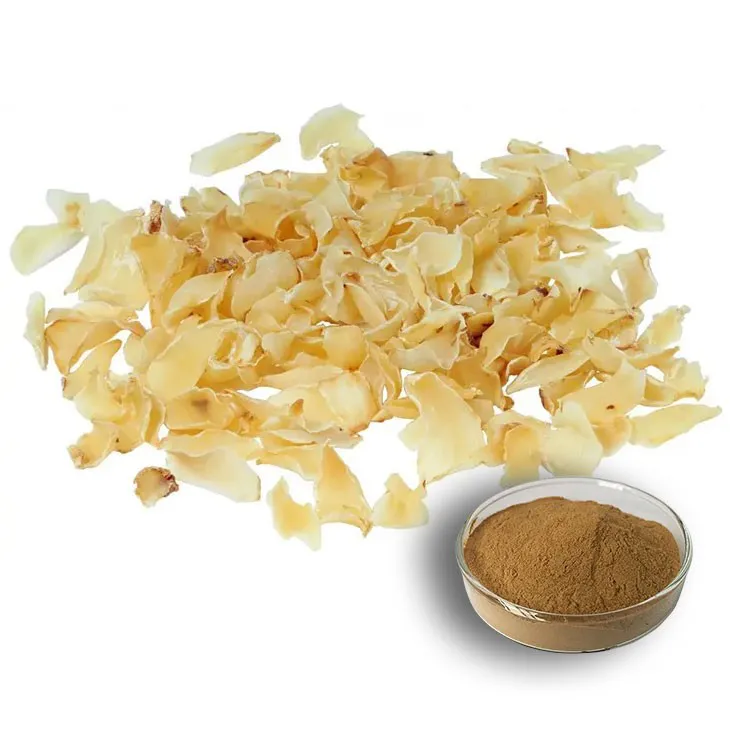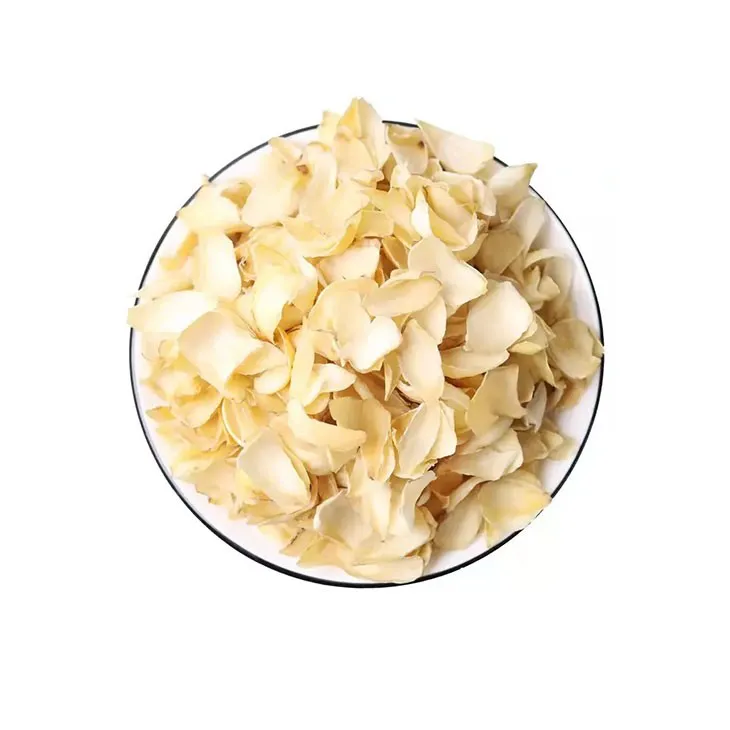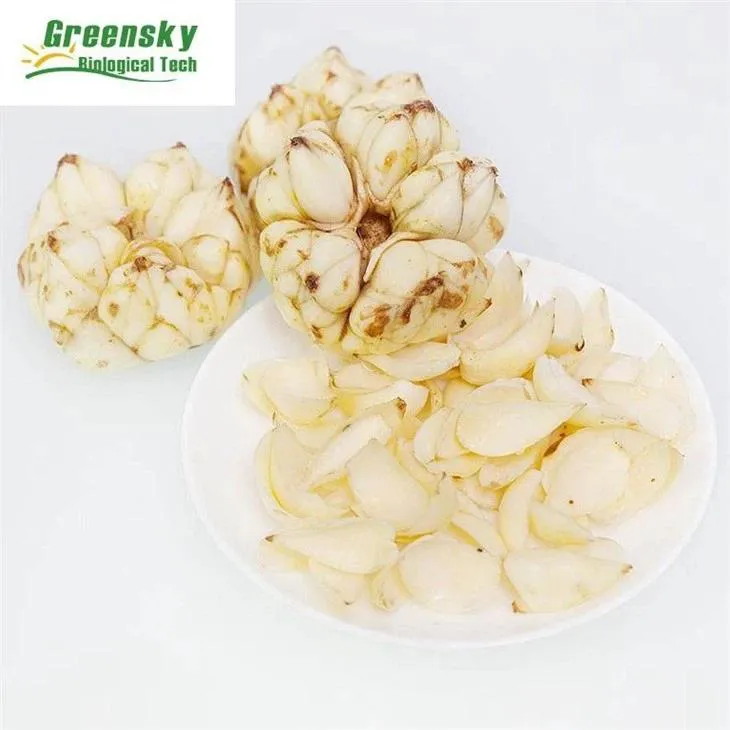- 0086-571-85302990
- sales@greenskybio.com
Lily extract: nature's best - kept secret.
2024-11-12

Introduction
Lily extract, often regarded as nature's best - kept secret, has a plethora of remarkable properties. It is derived from the beautiful lily flower, which has been cherished in various cultures for centuries. This extract is not only a symbol of beauty but also holds great potential in different fields, including cosmetics, traditional medicine, and more.

The Composition of Lily extract
Lily extract is rich in bioactive compounds such as flavonoids and alkaloids.
Flavonoids
Flavonoids contribute to its antioxidant capacity. Antioxidants are crucial as they help to combat free radicals in the body. Free radicals are unstable molecules that can cause damage to cells, leading to various health problems. By neutralizing these free radicals, flavonoids in lily extract play an important role in maintaining the body's overall health. For example, they can help prevent premature aging, reduce the risk of certain diseases such as heart disease and cancer, and support the immune system.
Alkaloids
Alkaloids, on the other hand, may have potential medicinal benefits. These include anti - inflammatory and antimicrobial effects. The anti - inflammatory property can be beneficial in reducing inflammation in the body. Inflammation is often associated with various health conditions, such as arthritis, skin problems, and digestive disorders. By reducing inflammation, alkaloids in lily extract may help alleviate symptoms and improve the overall condition of the affected area. Additionally, the antimicrobial effect means that it can potentially fight against harmful microorganisms, such as bacteria, viruses, and fungi. This could be useful in preventing and treating infections.

Lily Extract in the Cosmetic Industry
In the cosmetic industry, lily extract is a prized ingredient.
Skin Hydration
It can improve skin hydration. Well - hydrated skin looks more supple and radiant. The extract helps the skin to retain moisture, which is essential for maintaining a healthy skin barrier. A healthy skin barrier can prevent water loss from the skin, keeping it soft and smooth. This is especially important for people with dry skin types, as they often struggle with maintaining proper skin hydration. Lily extract can be used in various cosmetic products, such as moisturizers, serums, and masks, to enhance the hydration effect.
Soothing Properties
It also has soothing properties, which are beneficial for sensitive skin types. Sensitive skin is more prone to irritation, redness, and discomfort. The soothing effect of lily extract can help calm the skin, reducing these symptoms. It can be used in products designed for sensitive skin, providing a gentle and effective solution for those with this skin type. Moreover, lily extract may also have a positive impact on skin tone and texture, making the skin look more even and refined.

Lily Extract in Traditional Medicine
In traditional medicine, it has been used to treat various ailments, from respiratory problems to digestive disorders.
Respiratory Problems
For respiratory problems, lily extract has been used in traditional remedies. It may help soothe the airways, reducing cough and congestion. However, it should be noted that while traditional use suggests its effectiveness, more scientific research is needed to fully understand and validate these traditional uses. The mechanisms by which it may act on respiratory problems are not yet fully understood, and further studies are required to determine its safety and efficacy in treating respiratory conditions.
Digestive Disorders
In the case of digestive disorders, lily extract has also been used traditionally. It may have a role in promoting digestion, reducing digestive discomfort, and improving gut health. But again, more research is necessary to confirm these potential benefits. There could be various factors at play, such as the interaction of the bioactive compounds in lily extract with the digestive system, and these need to be explored in more detail.

Research and Future Prospects
Although lily extract has shown great potential, more scientific research is needed in several aspects.
- First, further studies are required to fully understand the composition of lily extract. There may be other bioactive compounds present that have not been discovered yet, and these could hold additional benefits.
- Second, more research is needed to confirm the medicinal benefits of lily extract. Clinical trials are necessary to determine its effectiveness in treating various diseases and disorders. These trials should be well - designed, with appropriate control groups and long - term follow - up.
- Finally, the safety of lily extract also needs to be thoroughly investigated. While it has been used in traditional medicine for centuries, modern safety standards require more comprehensive evaluation. This includes studying potential side effects, drug interactions, and appropriate dosage levels.
If more research is carried out successfully, lily extract could have a bright future. It could be developed into new drugs, cosmetics, or dietary supplements. For example, in the pharmaceutical industry, it could potentially be used to develop new medications for inflammatory diseases or infections. In the cosmetic industry, it could be further optimized to create more effective skincare products. And in the field of dietary supplements, it could be a valuable addition, providing health benefits through a natural source.
Conclusion
In conclusion, lily extract is a fascinating substance with great potential. Its rich composition of bioactive compounds gives it a wide range of properties, from antioxidant and medicinal benefits to cosmetic applications. While traditional medicine has long recognized its value, modern science is only beginning to uncover its secrets. With further research, lily extract could become an important ingredient in various industries, offering natural and effective solutions for health and beauty.
FAQ:
What are the main bioactive compounds in lily extract?
The main bioactive compounds in lily extract are flavonoids and alkaloids. Flavonoids are important for its antioxidant capacity, while alkaloids may have potential medicinal benefits such as anti - inflammatory and antimicrobial effects.
How does lily extract benefit the skin?
In the cosmetic industry, lily extract can improve skin hydration, making the skin look more supple and radiant. It also has soothing properties, which are good for sensitive skin types.
What traditional uses does lily extract have?
In traditional medicine, lily extract has been used to treat various ailments, from respiratory problems to digestive disorders. However, more scientific research is required to fully understand and validate these traditional uses.
Why is lily extract considered nature's best - kept secret?
It is considered nature's best - kept secret perhaps because its full potential has not been widely known or fully explored yet. Despite having many remarkable properties such as being rich in bioactive compounds, having benefits for the skin, and traditional medicinal uses, it may not be as well - known as some other natural extracts.
Is lily extract safe to use?
While lily extract has been used in traditional medicine and cosmetics, more research is needed to comprehensively determine its safety. Generally, in the context of normal cosmetic and traditional medicinal uses, it has not shown major safety concerns, but individual sensitivities may vary.
Related literature
- The Bioactive Compounds of Lilies and Their Potential Health Benefits"
- "Lily Extract in Cosmetics: A Comprehensive Review"
- "Traditional Medicinal Uses of Lily Extract: An Overview"
- ▶ Hesperidin
- ▶ Citrus Bioflavonoids
- ▶ Plant Extract
- ▶ lycopene
- ▶ Diosmin
- ▶ Grape seed extract
- ▶ Sea buckthorn Juice Powder
- ▶ Fruit Juice Powder
- ▶ Hops Extract
- ▶ Artichoke Extract
- ▶ Mushroom extract
- ▶ Astaxanthin
- ▶ Green Tea Extract
- ▶ Curcumin
- ▶ Horse Chestnut Extract
- ▶ Other Product
- ▶ Boswellia Serrata Extract
- ▶ Resveratrol
- ▶ Marigold Extract
- ▶ Grape Leaf Extract
- ▶ New Product
- ▶ Aminolevulinic acid
- ▶ Cranberry Extract
- ▶ Red Yeast Rice
- ▶ Red Wine Extract
-
Okra Extract
2024-11-12
-
Black Garlic Extract
2024-11-12
-
Feverfew Extract
2024-11-12
-
Konjac Powder
2024-11-12
-
Plantain extract
2024-11-12
-
Curcumin Extract
2024-11-12
-
Artichoke Extract
2024-11-12
-
Baicalin
2024-11-12
-
Eucommia Ulmoides Extract
2024-11-12
-
Sea buckthorn Juice Powder
2024-11-12





















